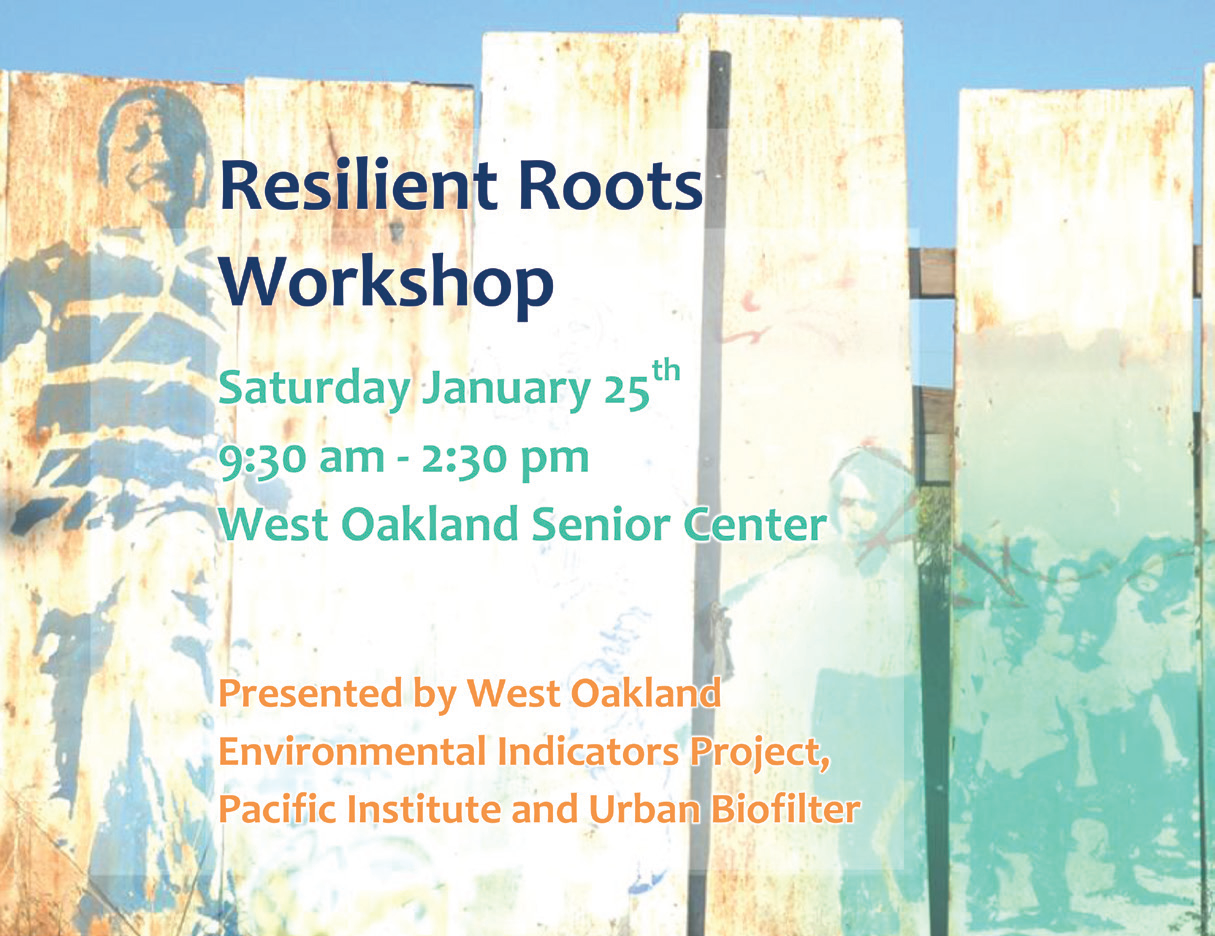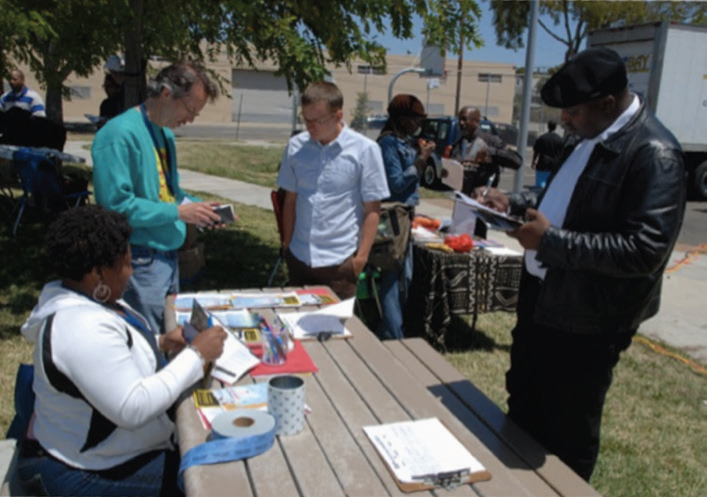
Source Margaret Gordon, Co-Director, West Oakland Environmental Indicators Project
Affiliation Oakland Climate Action Coalition
Phone 510-257-5640
Email margaret.woeip@gmail.com
Online http://www.oaklandclimateaction.org
By Jennifer Miller Download PDF: OCAC.pdf
The West Oakland community of Oakland, California has many reasons to be concerned about climate change. The neighborhood is close to sea level, and its aging infrastructure is easily flooded. Increased smog produced by warmer days compounds the neighborhood’s already poor air quality. Few parks and little green cover leave residents exposed during heat waves. Many residents here already grapple poverty, unemployment and limited access to healthy foods. At the same time, West Oakland has a long history of social justice activism, and is home to numerous community-based organizations that support anti-displacement, urban agriculture, and other environmental, community justice and resilience efforts. In this milieu, the Resilience and Adaptation Committee of the Oakland Climate Action Coalition (OCAC) is working to address the threats of climate change with solutions that build on community strengths and focus on locally scaled, community driven, sustainable steps that improve residents’ quality of life.
“The people who are most vulnerable [to climate change] live here in the flatlands,” says Margaret Gordon, co-lead of the committee, and co-director of the West Oakland Environmental Indicators Project (WOEIP). “We’re working to put the infrastructure piece, the health piece and the economic piece together with climate adaptation and with justice.”
“We want to connect residents to the information they need so they can take personal and community action to address climate change impacts and reduce emissions,” adds committee co-lead Catalina Garzon. With a strong emphasis on policy, the committee is also working to build resilience into land use and transportation plans and into the city’s Energy and Climate Action Plan, bringing a strong community lens to bear on these defining planning processes. Pilot project funding from Public Health Institute enabled the committee to prepare city agencies and West Oakland residents to collaborate more effectively on climate resilience and adaptation.

The committee also convened over 50 city, county and regional agency staff and community organization staff providing training and strategies on how to reach community residents, build trust, and work toward effective collaboration. The meeting showed agencies how their effectiveness depends on having a strong, positive relationship with a connected and prepared community.
The stakes here are high. With new, higher end development coming into West Oakland, community involvement is critical to ensuring that existing residents also benefit, such as from much needed upgrades to the their own sewers and other infrastructure. “We want retrofits, green infrastructure and meaningful input into the process,” insists WOEIP’s Gordon. Without community members at the table and resilience as a goal, adaptation solutions often take the form of infrastructure “hardening” and disaster response planning. The Resilience and Adaptation Committee instead promotes climate adaptation solutions that, simultaneously, improve the neighborhood and quality of life. The “green infrastructure” to which Gordon refers includes things like community gardens that reduce heat islands, provide neighborhood-based sources of food during emergencies, and offer healthier food year round and economic opportunity for growers. “We talk about how [these solutions] could connect with everyday needs,” explains co-lead Garzon.
The work of the committee, in this community that is engaged in many long term environmental justice fights, is ongoing. The promise of the Resilience and Adaptation Committee’s approach is that by focusing on community-based resilience, there is the opportunity to improve quality of life in overburdened, disadvantaged communities, even while preparing for and adapting to the threats of climate change.
For more information:
Oakland Climate Action Coalition: www.oaklandclimateaction.org
Margaret Gordon, Co-Director, West Oakland Environmental Indicators Project 510-257-5640, margaret.woeip@gmail.com
Jennifer Miller is a Senior Researcher with the Public Health Institute.


